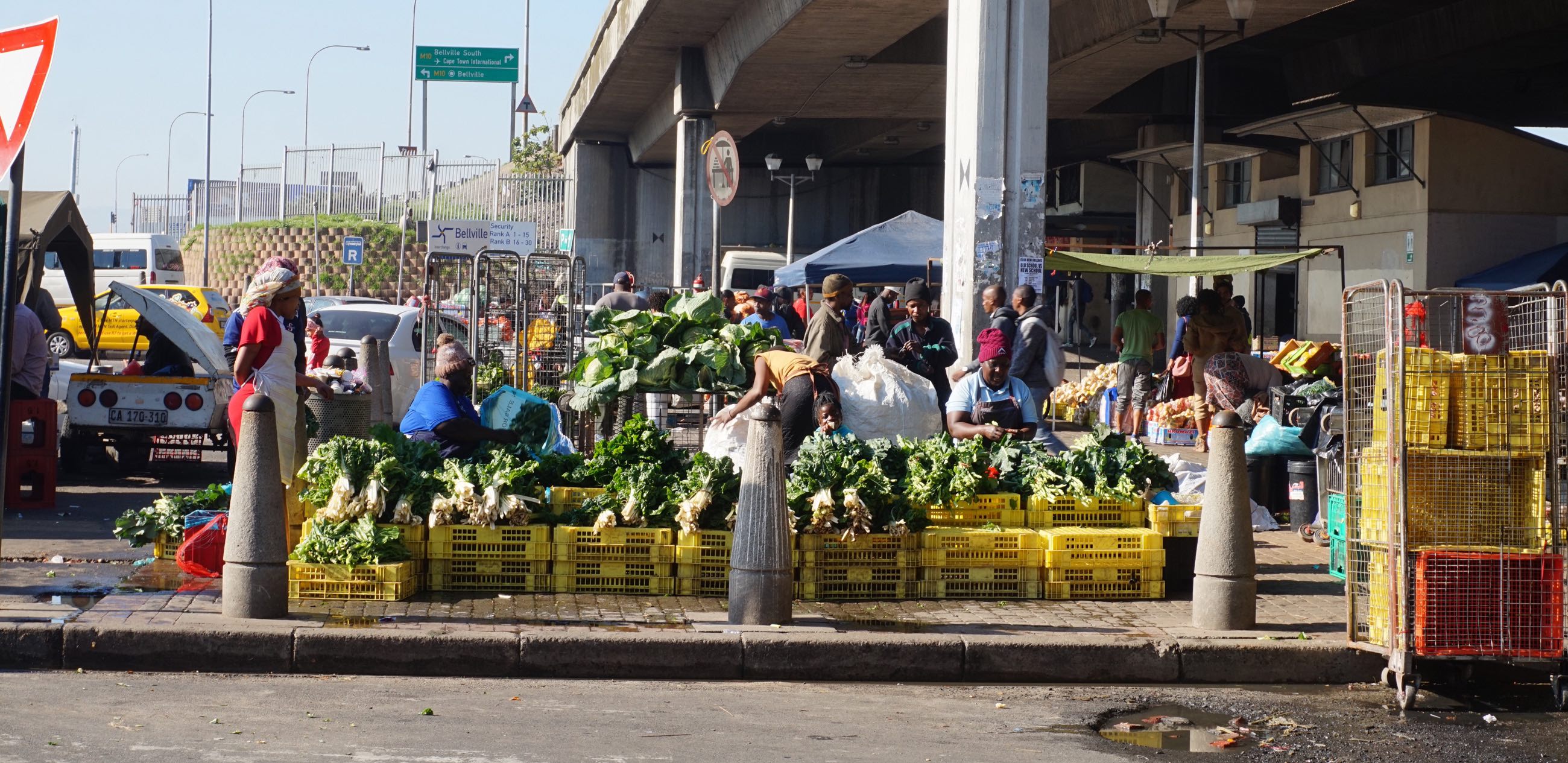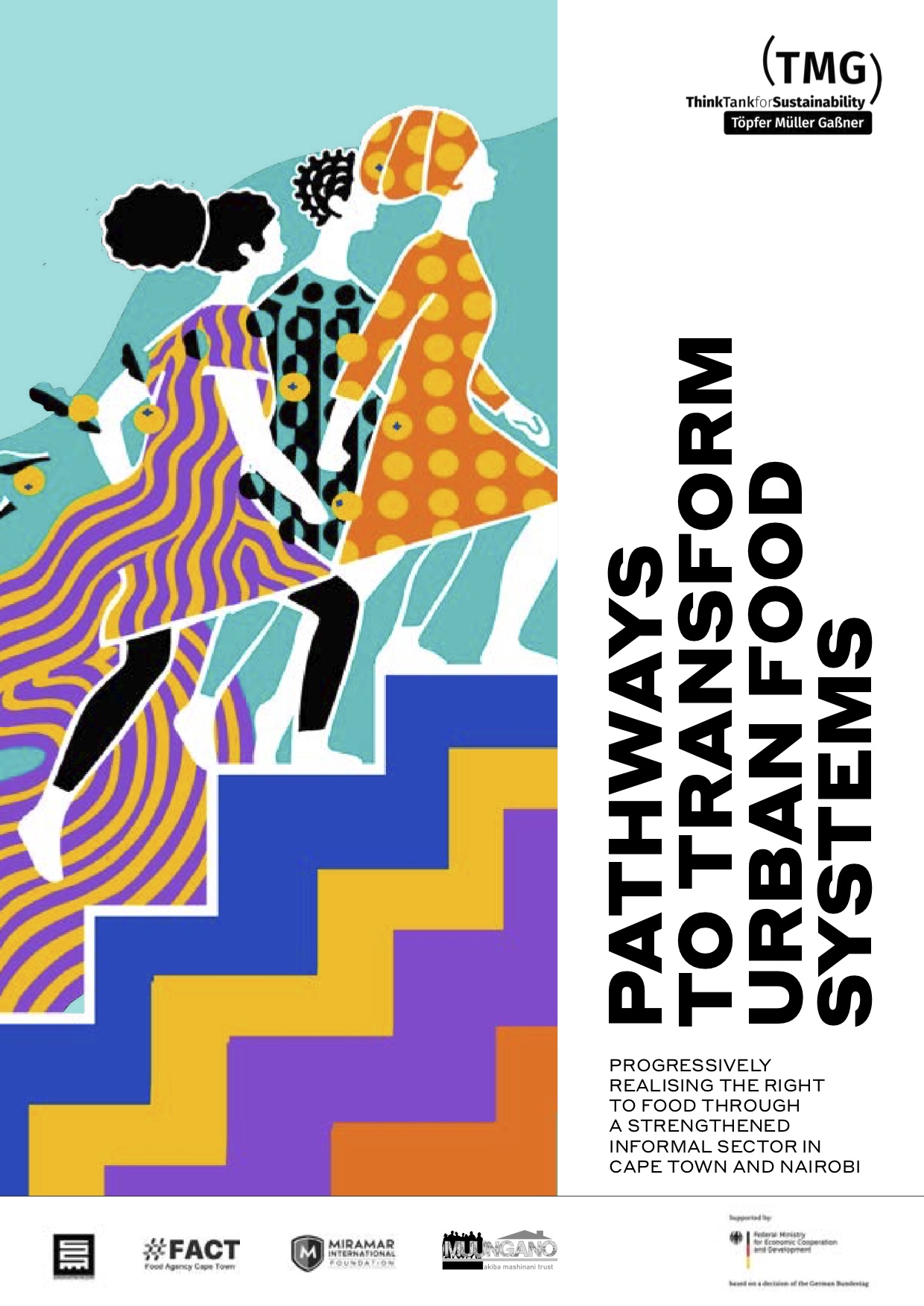From scoping to action research: Implementation of five pathways for more resilient and inclusive urban food systems in Cape Town and Nairobi
Strengthening Systemic Approaches to Urban Food Transformation
by Nicole Paganini | 2024-02-26

After one and a half years of intensive collaboration with partners in three African cities, TMG's Urban Food Futures programme has published its Scoping Report, Pathways to Transform Urban Food Systems. Setting out at the height of the COVID-19 crisis, our work was driven by one overarching question: how have low-income communities in the three cities responded to the impact of the pandemic on food security? And, subsequently, what can we learn from immediate community responses to design pathways for transformation of urban food systems?"
In Cape Town, for instance, we are pioneering new models for community kitchens that transcend their traditional roles and become hubs for addressing Gender-based violence and fostering political empowerment. Simultaneously, these kitchens serve as testing grounds for social security systems, contributing to the enhancement of community cohesion. In Nairobi, our focus has been on expanding our work in controlled-environment agriculture. We are actively testing and implementing greenhouses in informal areas to ensure a sustainable food supply to school feeding units. Our commitment to these initiatives underscores our dedication to creating impactful changes at the grassroots level. Beyond tangible actions, we are proud to have initiated dialogue platforms in both cities. These platforms aim to foster meaningful discussions on food governance, progressively realizing the right to food. Through open and constructive conversations, we hope to pave the way for positive transformations in urban food systems.
In addition to the scoping report and ongoing action research, we are excited to share that we have published four Opinion Briefs tackling Polycrisis, the Right to Food, Megatrends on the African continent and the Informal Food Sector in Nairobi. These briefs build upon the foundation laid by our scoping work, providing deeper insights into crucial debates surrounding urban food futures.
Outlook for 2024: Advancing Critical Perspectives on Urban Food Systems
As we embark on the journey into 2024, TMG is gearing up for a year marked by impactful initiatives and collaborative endeavours. One of our key focal points involves active debates to design innovations through a dialogue between local knowledge and global normative frameworks and policy processes. Particularly through a gendered lens on urban topics with a specific emphasis on the informal food sector. Our emphasis on the disproportionate representation of women in low-income areas sheds light on a significant yet neglected facet of urban life. Women are the majority in the informal economy, contributing substantially to livelihoods, but their impact is frequently marginalized in policy discussions.
Lastly, our commitment extends to reimagining food system transformation through the lens of those acquainted with ground realities. TMG plays a pivotal role in this endeavour by facilitating local and global dialogues, offering profound data and analysis, and igniting thoughtful reflections for a more equitable urban future.
Additionally, TMG, in partnership with Cape Town's community kitchen network, is proud to announce our participation in a panel at the United Nations Commission on the Status of Women (UNCSW) in New York. This initiative is not only the culmination of a transformative research phase but also an opportunity to weave our food work into the complex nexus of violence and gender debates.
Turning our attention to Nairobi, our work on informality will kick off with a comprehensive analysis involving food vendors. By delving into the challenges they face, we aim to gain a nuanced understanding that will contribute significantly to our ongoing efforts to strengthen the informal sector. Recognizing the pivotal role the informal sector plays in providing sustenance for the urban poor in the African context, this initiative aligns with our commitment to fostering positive change on a grassroots level.
 Urban Food FuturesFeb 09, 2026
Urban Food FuturesFeb 09, 2026Pushing the horizon: Urban farming and community-led innovation in Mukuru informal settlement
A small community-run greenhouse in Mukuru is offering insights into how controlled-environment agriculture can strengthen food security in urban environments under increasing pressure—and a look into the future of food systems in informal settlements.
Christian Sonntag, Emmanuel Atamba, Lumi Youm
 Land GovernanceDec 18, 2025
Land GovernanceDec 18, 2025Land tenure, women’s land rights, and resilience: Reflections from CRIC23 toward UNCCD COP17
Our experts discuss what the exchanges at CRIC23 highlighted and revealed about the role of secure and gender-equitable land tenure in the UNCCD's work ahead of the 2026 triple COP year.
Frederike Klümper, Washe Kazungu
 Urban Food FuturesDec 09, 2025
Urban Food FuturesDec 09, 2025The story of Mukuru's Urban Nutrition Hub
In Mukuru informal settlement, a safe haven for women has grown into the Urban Nutrition Hub, a multi-purpose space for nutrition education, training, and community development, demonstrating the potential of grassroots community-owned innovation..
Serah Kiragu-Wissler



